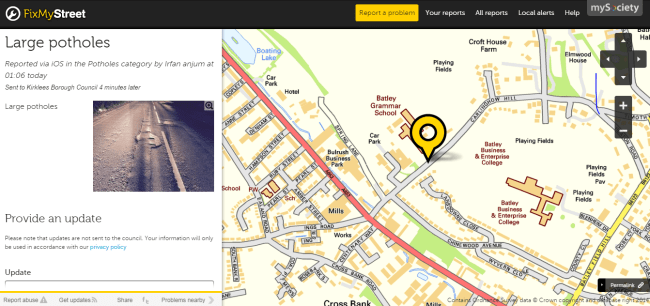
Pic by Jim Kaskade (flickr creative commons)
Matthew Salganik, Professor of Sociology at Princeton University, has recently put his forthcoming book on social research and big data online for an open review. Matthew is the author of many of my favorite academic works, including this experiment in which he and Duncan Watts test social influence by artificially inverting the popularity of songs in an online music market. He is also the brains behind All Our Ideas, an amazing tool that I have used in much of the work that I have been doing, including “The Governor Asks” in Brazil.
As in the words of Matthew, this is a book “for social scientists that want to do more data science, and it is for data scientists that want to do more social science.” Even though I have not read the entire book, one of the things that has already impressed me is the simplicity with which Matthew explains complex topics, such as human computation, distributed data collection and digital experiments. For each topic, he highlights opportunities and provides experienced advice for those working with big data and social sciences. His stance on social research in the digital age is brilliant and refreshing, and is a wake-up call for lots of people working in that domain. Below is an excerpt from his preface:
From data scientists, I’ve seen two common misunderstandings. The first is thinking that more data automatically solves problems. But, for social research that has not been my experience. In fact, for social research new types of data, as opposed to more of the same data, seems to be most helpful. The second misunderstanding that I’ve seen from data scientists is thinking that social science is just a bunch of fancy-talk wrapped around common sense. Of course, as a social scientist—more specifically as a sociologist—I don’t agree with that; I think that social science has a lot of to offer. Smart people have been working hard to understand human behavior for a long time, and it seems unwise to ignore the wisdom that has accumulated from this effort. My hope is that this book will offer you some of that wisdom in a way that is easy to understand.
From social scientists, I’ve also seen two common misunderstandings. First, I’ve seen some people write-off the entire idea of social research using the tools of the digital age based on a few bad papers. If you are reading this book, you have probably already read a bunch of papers that uses social media data in ways that are banal or wrong (or both). I have too. However, it would be a serious mistake to conclude from these examples that all digital age social research is bad. In fact, you’ve probably also read a bunch of papers that use survey data in ways that are banal or wrong, but you don’t write-off all research using surveys. That’s because you know that there is great research done with survey data, and in this book, I’m going to show you that there is also great research done with the tools of the digital age.
The second common misunderstanding that I’ve seen from social scientists is to confuse the present with the future. When assessing social research in the digital age—the research that I’m going to describe in this book—it is important to ask two distinction questions:
How well does this style of research work now?
How well will this style of research work in the future as the data landscape changes and as researchers devote more attention to these problems?
I have only gone through parts of the book (and yes, I did go beyond the preface). But from what I can see, it is a must read for those who are interested in digital technologies and the new frontiers of social research. And while reading it, why not respond to Matthew’s generous act by providing some comments? You can access the book here.


